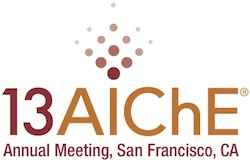

Treatment of cancer has been a perennial challenge to clinicians and researchers alike for more than a century. Existing treatment modalities are found to be effective only for patients of select genetic and phenotypic backgrounds. However , large genetic and phenotypic variations exist among patients so that the current approach of ‘standard-dose-for-all’ causes severe toxicity in some patients and insufficient treatment in others. Personalized medicine has been in practice in some form or other ever since medicine has been in existence. With the discovery of new complex diseases , increased incidence and mortality rates of existing diseases , the emphasis on personalized medicine has been gaining momentum in recent decades. The crux of personalized medicine lies in identifying genetic and biomolecular traits specific to a patient , followed by quantitative clinical decision making. With the mapping of the human genome and recent developments in ‘omic’ technologies , a deluge of patient-specific data have become available which can be used to characterize an individual patient to some extent so as to predict specific response to a drug. The ease of simultaneous characterization of several thousand gene expressions has greatly enhanced the capabilities of pharmacogenomics. Yet , the growth of personalized medicine has been far from optimum due to what we believe to be skewed application of these latest technological advancements. In many instances , pharmacogenomics is being interchangeably used for personalized medicine , which in reality is only one of the many facets of personalized medicine. The expression/observation of the molecular phenotype (e.g. proteins , small molecules) from the gene sequence involves numerous transcriptional and translational processes. Furthermore , molecular phenotypes act on various cell populations through several processes to produce clinical phenotype. All of these processes are stochastic and temporal in nature resulting in completely different response profiles for patients with the same genotype. A paradigm shift from evidence-based medicine to mechanism-based medicine will ensure that each patient is treated according to his/her own mechanism and thus should be the impetus for expanding implementation and utilization of personalized medicine. Under these circumstances , a holistic approach , integrating many levels of biomolecular entities and events , would provide more relevant information for clinical decision making. Given the complexity of biological processes and the amount of available data , it would be unreasonable to expect a simple deductive process or empirical models to guide personalized treatment. Quantitative models , derived from first principles and suitably empowered by systems theoretic methodology , have had a history of demonstrated successes in many scientific and industrial applications. This presentation will attempt to show that mathematical models have the potential to identify functionally interrelated sets of reactions and metabolites that are causally related to diverse pathophysiological conditions. It will further deliberate into the path to personalized medicine towards the development of a decision-support mechanism for physicians to quantitatively predict patient response and adjust dosage for an individual. Such a quantitative approach has the potential to greatly enhance the decision making capabilities of the treating physicians and improve the quality-of-life among cancer patients.
